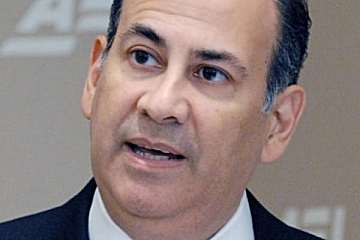 Latin American countries have finally rallied and rejected a bid by leftist regimes to silence the region’s human rights watchdog. Now regional democracies must restore the organization’s credibility after years of yielding to Chavistas.
Latin American countries have finally rallied and rejected a bid by leftist regimes to silence the region’s human rights watchdog. Now regional democracies must restore the organization’s credibility after years of yielding to Chavistas.
In what might be remembered as the end of the line for Chavismo as a regional political force, last week key Latin American countries soundly rejected a bid by leftist regimes to silence the region’s human rights watchdog. Those democratic nations – along with the United States – must now retake some of the momentum that they ceded to Venezuelan caudillo Hugo Chávez’s destructive agenda.
Left-wing leaders – principally Chávez and Ecuador’s Rafael Correa – spent much of the last decade waging a bitter feud with the Inter-American Commission on Human Rights (IACHR) because it dared to criticize brazen and systematic rights abuses in countries governed by authoritarian populists.
Chávez hurled personal insults at the commission’s members and staff, and even engineered the election of a panel member who brought the regime’s thuggish tactics into the commission’s chambers. The secretary general of the Organization of American States (OAS), Chilean socialist Jose Miguel Insulza, ran for cover rather than defend a body that championed human rights in the Pinochet era.
The latest assault on the commission came as Ecuador, Venezuela, and like-minded states proposed “reforms” that would have severely restricted the IACHR’s budget and taken away tools that it has long used to hold governments accountable for rights violations. Many democratic governments sat on the sidelines rather than be bullied by Chávez’s rabid rabble, but human rights groups and free press advocates resisted valiantly. Members of the U.S. Congress from both parties weighed in forcefully to defend the commission, and the Washington Post helped ensure that the attack received prominent attention in the U.S. print media.
Last Friday, after 12 hours of deliberation, a special assembly of the region’s foreign ministers scuttled the pernicious proposals. (The Council of the Americas chronicles the show-down.) Governments that had lain low for years finally rallied to defend the IACHR’s mandate. After a series of delegations revealed their opposition, it became clear that the authoritarian bloc would have suffered a humiliating defeat if their amendments had been put to a vote. Instead, anodyne language was fashioned in a final resolution that would allow the aggressors to save face.
Prominent human rights advocate José Miguel Vivanco, a frequent target of the late Hugo Chávez, described the outcome as “a resounding victory for the commission, and a major defeat for the Venezuela-Ecuador bloc … It became evident that they were left totally isolated, without the support they were expecting from other countries.”
There’s reason to celebrate, but the governments in the region that left the commission twisting in the wind also have some explaining to do.
In June 2009, virtually every government in the region helped scrap the historic Inter-American Democratic Charter when they advocated the re-admission of the Castro dictatorship in Cuba to the ranks of the OAS. They also went along as the OAS ignored systematic human rights abuses in leftist states while sanctioning governments that did not tow the Chavista line. Chávez bought, bullied, and berated his way to exaggerated influence in the Americas. Much damage could have been avoided if governments that opposed the Chavista agenda had simply defended their principles.
It is possible that Ecuador, Bolivia, Nicaragua, and Venezuela will regroup to launch another attack on the human rights system. However, with Chávez dead and his heirs preoccupied with their own survival at home, it is likely that this destructive diplomacy will run out of steam.
Now, democratic governments can restore the credibility of the inter-American system as an advocate for responsible government, democratic institutions, and fundamental human rights. To do so, they will have to muster the same energy in building it up as Chavismo did in tearing it down.
* Roger F. Noriega is a visiting scholar at the American Enterprise Institute; he was assistant secretary of State for Western Hemisphere Affairs and ambassador to the Organization of American States in the administration of former President George W. Bush from 2001-2005.
Source: The American











Discussion
No comments for “Opinion: Latins Rally to Restore Human Rights Panel – by Roger F. Noriega”